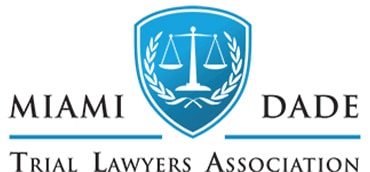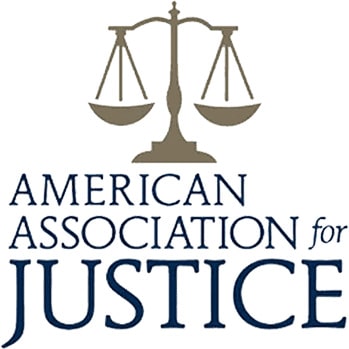Can you charge someone with molestation years later? Yes, depending on the statute of limitations where you live. This article will explain your legal options and what steps you can take.
Key Takeaways
- Florida has no statute of limitations for child molestation cases if the victim was under 16, while victims older than 16 can file lawsuits within seven years of turning 18 or four years of discovering their trauma.
- Filing criminal charges requires gathering substantial evidence, as the district attorney decides whether to proceed based on the strength of the case presented by law enforcement.
- Survivors can pursue civil lawsuits for compensation, where the burden of proof is lower than in criminal cases, potentially leading to significant financial awards for damages related to their abuse.
Understanding the Statute of Limitations for Child Molestation in Florida

The statute of limitations determines the timeframe within which victims of child sexual abuse must report their abuse and seek justice.
Florida’s statute of limitations aims to resolve cases while evidence and witness memories are fresh, ensuring a fair process for all parties.
However, these time limits can create barriers for survivors, highlighting the importance of understanding the specific rules and exceptions for child molestation cases.
Florida’s statute of limitations for child molestation cases depends on the victim’s age and the circumstances of the abuse. For example, there is no statute of limitations for victims under 16 to file lawsuits related to sexual abuse.
Victims have seven years from turning 18 to file a lawsuit, and the delayed discovery rule permits filing within four years of recognizing a connection between their injuries and the abuse.
These nuances are key for survivors seeking justice after many years.
What is a Statute of Limitations?
A statute of limitations sets the period within which individuals must initiate lawsuits or criminal charges. This period ensures cases are handled while evidence is available and witnesses’ memories are clear, maintaining the legal process’s integrity. Essentially, the statute of limitations defines the maximum period for initiating legal proceedings after an alleged offense.
Survivors of child sexual abuse need to understand the statute of limitations. It informs them of their rights and the time limits for seeking justice. These statutes vary by state, each defining different timeframes and conditions for legal actions. Awareness of these specifics can significantly impact the pursuit of justice.
Florida’s Specific Rules for Child Molestation Cases
Florida’s statutes of limitations for child molestation cases accommodate the unique challenges faced by childhood sexual abuse survivors. These rules set deadlines for criminal charges or civil lawsuits, ensuring a fair chance for survivors to seek justice. For example, there is no statute of limitations for filing lawsuits if the victim was under 16 at the time of the abuse. This provision acknowledges the severe impact on child victims, allowing them to seek legal recourse without time constraints.
For victims older than 16, Florida law allows filing a lawsuit within seven years of turning 18 or within four years of discovering the injury-abuse connection. These rules offer flexibility for survivors who need time to process their experiences and trauma.
Knowing these specific regulations is crucial for anyone navigating the legal process in child molestation cases.
Exceptions and Extensions to the Statute of Limitations
Although statutes of limitations set general time limits for lawsuits, important exceptions and extensions can apply, especially in child molestation cases. One key exception is the discovery rule, permitting lawsuits after the standard limit if survivors recently discovered the injury-abuse connection. This rule acknowledges that the psychological impact of childhood sexual abuse can delay recognition and action on trauma.
Some jurisdictions allow prosecution of historical sexual assault cases despite significant time lapses, as long as the statute of limitations has not expired. In Florida, victims can report child molestation incidents regardless of the time passed, provided the statute of limitations allows.
These extensions and exceptions ensure survivors have every opportunity to seek justice and hold abusers accountable.
Contact us today for your free & confidential case review. Our team will help you get the compensation that you deserve.
Filing Criminal Charges for Historical Child Molestation Cases
Filing criminal charges for historical child molestation is daunting but a crucial step in seeking justice and holding abusers accountable. The process includes reporting the crime to local law enforcement, engaging with the district attorney, and gathering necessary evidence for prosecution, including a criminal complaint. Knowledgeable legal representation can significantly enhance the chances of a favorable outcome, as expertise and experience are crucial in navigating historical child molestation claims.
Survivors should start this process promptly and provide detailed information to law enforcement. After reporting the crime occurred, the district attorney decides whether to press criminal charges based on the available evidence. Comprehensive evidence is essential for successful prosecution, so survivors must be well-prepared and supported.
Reporting the Crime to Local Law Enforcement Agencies
Survivors can report their experiences to local police or through medical professionals if they seek medical care. When reporting historical child molestation, survivors should provide as much detail as possible. Detailed information facilitates the investigation and helps law enforcement build a strong case against the offender.
Accurate and comprehensive reporting significantly impacts the pursuit of justice.
The Role of the District Attorney in Pressing Criminal Charges
The district attorney (DA) plays a key role in the criminal justice system, especially in historical child molestation cases. After receiving evidence from the local law enforcement agency, the DA assesses whether there are sufficient grounds to file criminal charges. This decision depends on the strength of the evidence and the likelihood of securing a conviction. The DA may proceed with charges even if the survivor hesitates to participate actively. This ensures the perpetrator is held accountable, protecting other potential victims.
The DA’s role continues beyond filing charges. They prosecute the case, present evidence in court, and argue for the survivor’s rights. This process can be emotionally taxing, but a dedicated DA significantly increases the chances of successful prosecution.
Evidence Requirements for Successful Prosecution
Before:
Comprehensive evidence is crucial for the successful prosecution of historical child molestation cases. Survivors should compile all relevant documentation and evidence before meeting with their attorney for thorough case preparation. This includes medical records, therapy notes, witness statements, and any other documentation supporting their allegations. A well-documented case strengthens the survivor’s position and increases the chances of a favorable outcome.
After:
- Medical records
- Therapy notes
- Witness statements
- Any other documentation supporting their allegations
A well-documented case strengthens the survivor’s position and increases the chances of a favorable outcome.
Survivors should also understand court procedures. Familiarity with these procedures can alleviate anxieties and boost confidence during the legal process. This preparation helps present a strong case and empowers survivors to advocate for their rights effectively.
Legal professionals can guide survivors through complex procedures, ensuring they are well-prepared.
Pursuing Civil Lawsuits for Childhood Sexual Abuse
Survivors of childhood sexual abuse can also pursue civil lawsuits for compensation. Unlike criminal cases, which punish offenders, civil lawsuits aim to provide financial redress for damages inflicted on survivors. This can include compensation for medical expenses, lost wages, and emotional distress. Civil lawsuits offer a different form of justice and can significantly aid the healing process.
Survivors need to understand the differences between criminal and civil court cases. Civil lawsuits have a lower burden of proof than criminal cases, potentially making it easier to achieve a favorable outcome. Successful civil lawsuits can result in significant financial compensation, covering various damages and supporting recovery.
Differences Between Criminal and Civil Cases
Criminal and civil cases mainly differ in their objectives and burden of proof. In criminal cases, the standard of proof is “beyond a reasonable doubt,” meaning the evidence must be convincing enough to eliminate reasonable doubt about the defendant’s guilt. This high standard is necessary because criminal convictions can lead to severe penalties, including imprisonment.
In contrast, civil cases use the “preponderance of evidence” standard, which is lower than that of criminal cases. This means the evidence must show it is more likely than not that the defendant is liable for the damages claimed. Due to this lower burden of proof, survivors may find it more feasible to win a civil lawsuit and obtain compensation and justice.
Potential Damages in Civil Lawsuits
Civil lawsuits for childhood sexual abuse can result in various forms of compensation. Survivors can pursue compensatory damages for emotional suffering and financial losses caused by the abuse. This includes medical expenses for therapy and treatment, lost wages due to inability to work, and compensation for psychological trauma.
The amount of compensation in civil lawsuits can vary greatly, often ranging from $500,000 to $5,000,000, depending on the specifics of each case. These financial awards can provide crucial support for survivors, helping them access necessary resources for their recovery and offering a measure of justice for the harm they have suffered.
Legal Process for Filing a Civil Claim
Filing a civil lawsuit for childhood sexual abuse involves several key steps. It starts with consulting with an attorney who specializes in such cases to assess the viability of the claim. The attorney will guide the survivor through the legal process, which includes gathering evidence, filing the complaint, and potentially going to trial.
Having experienced legal representation is crucial as it ensures that the survivor’s case is well-documented and effectively presented in court. Civil lawsuits focus on securing compensation for the damages suffered rather than punishing the offender. This distinction is important for survivors to understand as they seek justice and financial redress for their trauma.
Psychological Impact and Support Resources for Survivors

The psychological impact of childhood sexual abuse can be profound and long-lasting.
Survivors who have been sexually abused often experience conditions such as post-traumatic stress disorder (PTSD), anxiety, and depression as a direct consequence of their trauma.
These psychological injuries can significantly affect their overall well-being and quality of life.
Financial compensation from civil lawsuits can provide vital support, enabling survivors to access the resources they need for their healing journey.
Support resources are essential for helping survivors navigate their recovery.
Various hotlines and counseling centers offer dedicated support to survivors of sexual abuse, providing a safe space to share their experiences and seek professional help.
Utilizing these resources can greatly enhance a survivor’s capacity to cope and recover from their trauma.
Common Psychological Traumas Experienced by Survivors
Many survivors of childhood sexual abuse report experiencing severe psychological traumas, including post-traumatic stress disorder (PTSD). PTSD can manifest in various ways, such as flashbacks, nightmares, and heightened anxiety, significantly disrupting a survivor’s daily life. Other common symptoms include depression, anxiety, shame, and self-blame, which can exacerbate their psychological distress and impact their overall well-being.
Complex trauma, which affects a survivor’s ability to trust others and form healthy relationships, is another significant issue. Survivors often struggle with feelings of isolation and fear, making it challenging to seek help or discuss their experiences openly.
Support groups can provide a vital community setting where survivors can share their experiences and coping strategies, offering mutual support and understanding.
Seeking Professional Help and Counseling
Seeking professional therapy is a crucial step for survivors of childhood sexual abuse. It helps address the trauma and supports emotional healing. Cognitive-behavioral therapy (CBT) and trauma-focused cognitive behavioral therapy (TF-CBT) are commonly recommended approaches that have proven effective in treating trauma-related issues. Another effective therapy is eye movement desensitization and reprocessing (EMDR), which can help survivors process and integrate traumatic memories.
Hotlines and counseling services, such as those provided by the Rape, Abuse & Incest National Network (RAINN), offer 24/7 support for survivors, helping them connect with mental health professionals. The National Sexual Assault Hotline, reachable at 800.656.4673, is an invaluable resource for immediate assistance and guidance.
These services are vital in providing the support and counseling needed to navigate the complex emotional landscape of recovery.
National Sexual Assault Hotline and Other Support Services
The National Sexual Assault Hotline offers confidential support 24/7 for survivors of sexual assault and their loved ones. By calling 1-800-656-HOPE (1-800-656-4673), survivors can speak with trained advocates who provide assistance and connect them with local resources. These advocates offer a listening ear, practical advice, and referrals to counseling and support services, helping survivors begin their healing journey.
Local support services, including counseling centers and support groups, also play a crucial role in aiding survivors. These services provide a safe space for survivors to share their experiences, receive professional counseling, and build a support network. Utilizing these resources can significantly enhance a survivor’s capacity to cope and recover from the trauma they have experienced.
Importance of Legal Representation in Historical Child Molestation Cases
Experienced legal representation is essential in historical child molestation cases. An attorney can navigate the complex legal frameworks, ensuring that survivors’ rights are protected throughout the legal process. Skilled legal representation can also help address the significant emotional challenges that survivors face, providing support and advocacy at every step. The presence of an experienced attorney can greatly influence the decisions and outcomes in these cases, making a substantial difference in achieving justice.
Legal representation is not just about handling paperwork and court appearances; it’s about providing survivors with the confidence and support they need to confront their abusers and seek justice. A knowledgeable lawyer can guide survivors through both the criminal and civil aspects of their case, ensuring that they understand their rights and options and that their case is presented effectively.
How an Attorney Can Assist in Your Case
Attorneys play a crucial role in navigating the complexities of both criminal and civil cases related to molestation. They can guide survivors through the legal process, handle court filings, and negotiate with opposing counsel on their behalf. Consulting with a lawyer is essential as the initial step in filing a civil claim, helping to assess the viability of the case and determine the best course of action.
Survivors should reach out to legal firms that specialize in sexual misconduct cases to explore their legal options. These specialized attorneys have the experience and knowledge needed to handle the unique challenges of child molestation cases, ensuring that survivors receive informed and empathetic legal support.
Choosing the Right Lawyer for Your Needs
Selecting a lawyer who specializes in child molestation cases is crucial, as they have the specific knowledge and understanding of the legal intricacies involved. Look for attorneys who have a background specifically in sex crime cases to ensure they are equipped to handle the unique challenges of these cases. Specialized understanding and experience are key to providing the best possible representation and support.
Choosing the right lawyer involves researching their background, experience, and track record in handling cases similar to yours. This ensures that you receive informed legal advice and that your case is managed by someone who understands the emotional and legal complexities involved.
Preparing for Legal Proceedings
Preparing for legal proceedings involves several critical steps. The process typically starts with gathering evidence, filing a complaint, and potentially going to trial. The timeline for settling a civil claim for childhood sexual abuse can vary from several months to several years, depending on factors such as the availability of evidence and the complexity of the case. Being well-prepared and understanding the legal process can significantly impact the outcome of your case.
Working closely with your attorney to document your case thoroughly and understand court procedures is essential. This preparation not only helps build a strong case but also empowers you to navigate the legal system with confidence and clarity.
Frequently Asked Questions
Can I file a lawsuit for child molestation if the abuse happened many years ago?
Yes, you can file a lawsuit for child molestation even if the abuse occurred many years ago, particularly in Florida, where specific rules like the discovery rule allow for such actions. It’s crucial to consult with a legal professional to understand your options.
What is the role of the district attorney in pressing criminal charges for historical child molestation cases?
The district attorney plays a crucial role in assessing the evidence from law enforcement to determine whether criminal charges should be filed in historical child molestation cases. Their decision is pivotal in seeking justice for victims.
What types of compensation can I seek in a civil lawsuit for childhood sexual abuse?
You can seek compensation for medical expenses, lost wages, and emotional distress in a civil lawsuit for childhood sexual abuse, with potential settlements typically ranging from $500,000 to $5,000,000. It’s important to understand your rights and the types of damages you may be entitled to.
How can an attorney assist me in my historical child molestation case?
An attorney can significantly aid your historical child molestation case by navigating the legal process, managing court filings, negotiating with opposing counsel, and offering expert legal support. Their expertise ensures that your rights are protected throughout the proceedings.
What psychological support resources are available for survivors of childhood sexual abuse?
Survivors of childhood sexual abuse can access various psychological support resources, including the National Sexual Assault Hotline and local counseling centers that provide professional counseling and support services tailored to their needs.
Last updated Monday, December 9th, 2024











